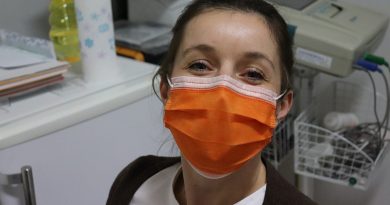Types Of Eczema And Its Causes And Symptoms
Types Of Eczema And Its Causes And Symptoms
Eczema is a type of disease that can be caused genetically or environmental or immunologic factors resulting in itchy, red, swollen and cracked skin.
Eczema condition is very common in children but adults can get too! People with eczema often have allergies or asthma. Furthermore, there are many types of eczema that can happen to a person. However, if you feel dry, scaly skin, redness or itchy skin then you need to look for an eczema specialist and book your appointments right away!

Have a look at these different types of eczema, its causes and symptoms:
Atopic Dermatitis
Atopic dermatitis starts from early stages of childhood which gets milder in adulthood. Atopic dermatitis is the most common type of eczema. Doctors call it atopic “Triad” where triad means three. Atopic dermatitis is basically a combination of 3 diseases which is eczema, asthma, and hay fever. However, it is very rare to have atopic dermatitis all alone because most of the people have all three conditions.
Causes
Atopic dermatitis happens to that part of the skin where the natural barrier of the elements is weakest. Due to that, the skin cannot protect you against the irritants and allergens. This disease is commonly caused by combining factors such as genes, dry skin, a problem in the immune system, and triggers in the environment.
Symptoms
Atopic dermatitis often forms rashes in the crease of your elbow or knees. The skin where the rashes appear will become lighter or darker or thicker! Small bump will also appear on the skin filled with liquids!
Contact Dermatitis
If your skin gets red and causes irritation by touching some reactive substance then you must be having contact dermatitis. This disease comes in two types: Allergic contact dermatitis which occurs by touching irritant materials like latex or metal. Irritant contact dermatitis which is caused by chemical and other such substances.
Causes
As the name suggests, it is usually caused by touching reactive materials which caused allergic reactions such as detergents, bleach, jewelry, latex, nickel, paint, skin care products, and many more!
Symptoms
If you have contact dermatitis then your skin starts itching, turns red, starts burning, and stings. Small pumps will appear on your skin which starts popping and over the time the skin starts getting thick and feels scaly.
Dyshidrotic Eczema
Dyshidrotic eczema which is also known as pompholyx is a condition where tiny fluid-filled blisters start appearing on the palms and fingers in the body. It is usually more common in women!
Causes
Dyshidrotic eczema is commonly caused by allergies, damp hands, and feet. It can also be caused by stress or getting exposed to substances such as nickel, cobalt, and chromium salt.
Symptoms
Dyshidrotic eczema contains fluid-filled blisters which form on your fingers, toes, palms, and soles of your feet and these blisters can itch or hurt. The skin also starts scaling and cracking!
Neurodermatitis
Neurodermatitis can cause thick and scaly patches which pop up on your skin and is the same as atopic dermatitis.
Causes
Stress could trigger neurodermatitis and it usually happens to the people who have other types of eczema or psoriasis.
Symptoms
You can get thick and scaly patches on your arms, legs, back of your neck and hands and bottoms of your feet. These patches get itchy and if you try to scratch them, it can start bleeding!
Conclusion
Eczema is a disease that can attack anyone, so it is always better to take precautions to prevent it! However, if you still got eczema then you can consult the best skin specialist in London.

